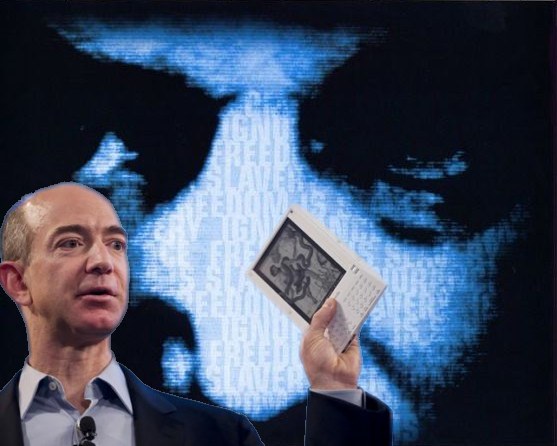
Bezos may have apologized, but the stink of Amazon’s unprecedented act of cyberburglary is still strong enough that people aren’t likely to forget any time soon. It’s a good thing, then, that Amazon has struck while the iron is still slightly hot by announcing the terms under which they will consider themselves justified in making your book an unbook.
Nobody likes the idea of having a corporation forcefully take back something they legitimately purchased (whether it was legitimately offered is not their concern), but the truth is that e-books and other “virtual property” will have to be subject to some of the same laws and restrictions as real property. I can’t think of many situations where the police would be justified in entering my house and removing an item I had purchased, without my consent, but that’s what judges and warrants are for. Amazon is, for the most part, its own judge (and extraction team), but they haven’t left too many doors open for more Orwellian tomfoolery.
As part of a settlement (pdf) with the high school student who sued Amazon following the event, they issued the following guidelines:
Amazon will not remotely delete or modify such Works from Devices purchased and being used in the United States unless
(a) the user consents to such deletion or modification;
(b) the user requests a refund for the Work or otherwise fails to pay for the Work (e.g., if a credit or debit card issuer declines to remit payment);
(c) a judicial or regulatory order requires such deletion or modification; or
(d) deletion or modification is reasonably necessary to protect the consumer or the operation of a Device or network through which the Device communicates (e.g., to remove harmful code embedded within a copy of a Work downloaded to a Device).
(via TechFlash and All Things D; carriage returns mine)
The guidelines seem perfectly straightforward, although they do leave open to interpretation what “reasonably necessary” and “protect” mean. Bookmark this page in case one of your books gets sucked out of your Kindle, and see if you fall under any of these circumstances. Note that they don’t “stack,” i.e. you don’t need to consent for them to take the book off if your card is rejected. However, if you keep it disconnected, they’ll never know — you outlaw you.
It’s good to have these regulations in place, but they’re merely internal Amazon rules and only apply to e-books; expect further skirmishes of this type as real and virtual property (and property lines) overlap further.